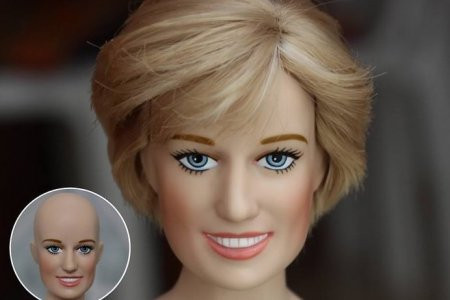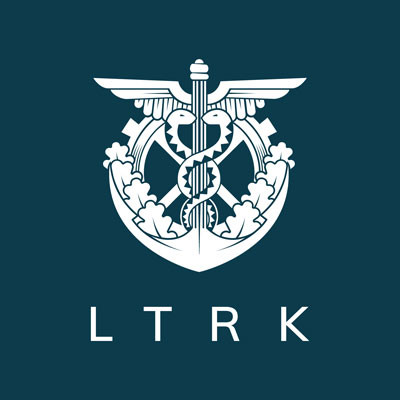What to Do if Women Experience Hair Loss and How to Treat It
Author: Ilze Zonne www.nra.lv
From a single hair follicle, about 25 hairs grow during a person's lifetime. Each hair grows for two to six years, then rests for two to four weeks before falling out in the next two to four weeks. The scalp has more than 100,000 hair follicles, and they go through different growth phases, meaning that lost hairs are replaced by new ones, and the total number of hairs remains fairly constant. Even if you notice more hairs than usual in your comb, it is not a cause for serious concern, as long as the hair does not become visibly thinner or bald patches do not appear. If the body faces tough times and has to sacrifice hair, this does not happen immediately: the hair continues to stay in place until the last moment and falls out about two to three months after illness, stress, hormonal changes, or other situations that disrupt the body's balance.
Hereditary Hair Loss
Women, just like men, although less often, can have hereditary hair loss, which manifests as gradual thinning of the hair. It is most noticeable around the parting. American dermatologists describe it as a pinecone-like arrangement of the hair. The loss occurs cyclically – significant hair loss is followed by a period where hair does not fall out. With treatment, the hair growth cycle can be extended, thus delaying the onset of hair loss, so treatment should be started early. Women with hereditary hair loss should carefully choose contraceptive methods, as hormonal fluctuations contribute to hair loss.
Hair Loss and Diseases
Hair loss is one of the symptoms accompanying thyroid diseases – both those associated with overactive and underactive thyroid function. Once the disease is diagnosed and its course is controlled, hair growth usually restores. A common cause is also iron deficiency anemia, which is linked to a lack of iron in the body. Cancerous diseases, which are treated with radiation therapy and chemotherapy, often result in significant hair loss. One of the most traumatic moments in the treatment process is when hair loss occurs, but it is temporary and reversible. Hair loss can also be a side effect of antibiotics, hormone medications, and other drugs prescribed by a doctor. Sometimes, hair loss is caused by the unauthorized use of medications.
Weight Loss
While excessive weight is a common issue for many women and solving it is commendable, it is also important to know that whenever a person loses more than 1.5 kg of body weight, they will lose some hair within three to six months. This hair loss is temporary, and the hair tends to grow back, especially if stimulated. Extreme, very restrictive, and one-sided diets that do not provide enough protein and iron for the body can be particularly harmful to the hair. The main source of iron in our diet is meat. Vegetarians should also pay attention to sufficient iron intake. Experienced followers of this diet system have their own methods for ensuring adequate iron intake, and they can share their knowledge with others; it is definitely worth discussing this issue with a family doctor or a dietitian. If the diet appears to be balanced, and the body has not experienced any shocks, but the hair continues to fall out, a comprehensive health check-up is needed.
Stress and Hormonal Changes
Significant hair loss is often observed after the body undergoes physical stress: major surgeries, childbirth, fever, severe infections; it can also occur after the flu. Various emotional stresses, worries, and tense periods in life also affect hair health. The hair does not fall out immediately but after a certain period, when the worries may have been forgotten. Stress-induced hair loss usually does not require treatment, and hair typically grows back on its own. Hormonal events such as childbirth or menopause also promote hair loss, as these situations involve sudden fluctuations in female sex hormones – estrogens. Over time, the hair grows back, but in middle age, it does not grow back as abundantly as in youth.
Improper Hair Care
In an attempt to achieve the desired appearance, which nature did not give, women sometimes overlook the limits of their hair's patience. Regular hair bleaching, perms, excessive use of curling irons, frequent use of hot hair dryers, improper use of hair dyes, gels, and hairsprays can all cause hair breakage. Hair is damaged when creating dreadlocks, African braids, and also through overly vigorous towel drying immediately after washing, or combing wet hair.
At the Rubenhair Baltic Hair Transplant and Skin Health Center, hair loss and hair treatments are handled by experienced trichologists Dr. Lāsma Lapiņa and Dr. Jevgeņija Čumakova. A trichologist is a doctor who specializes in hair loss, hair treatments, and scalp treatments. Before starting therapeutic treatment, it is important to determine the cause, as not knowing the cause may result in ineffective therapy. To understand the cause, the doctor will prescribe blood tests, a scalp scraping analysis, and create a trichogram. After diagnosis, during a follow-up visit, based on the previous consultation and test results, the doctor will offer a treatment course. This includes the use of medication and therapeutic cosmetics, advice on diet and lifestyle changes, as well as injections in the scalp's hair-bearing area. This is mesotherapy, consisting of vitamin cocktails and platelet-rich plasma (PRP) injections.







